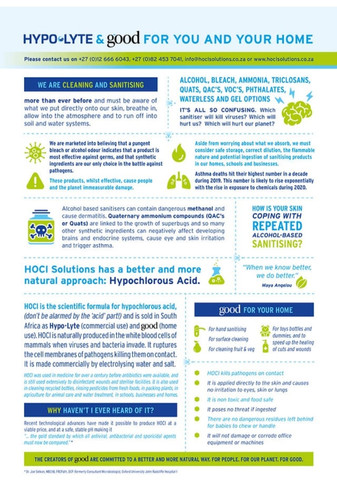As temperatures warm up, you might start to experience fly larvae (maggots) in your bin especially because JHB has a bit of a fly problem. There is no need to panic because preventing and removing wiggly maggots can be done by following a few simple steps.
Where do maggots come from?
House flies are relatively harmless and serve an important role in our ecosystem, however, they are responsible for the transmission of over 100 pathogens that cause diseases in humans. Keeping fly numbers down by reducing favourable breeding spots is important to ensure there aren’t flies buzzing around your bin and home.
Adult flies lay their tiny eggs (1.2 mm long) on a variety of waste/organic matter where they hatch and turn into larvae also known as maggots. Maggots are more prevalent in spring and summer where they can complete their lifecycle in as little as 10 days if temperatures are warm enough.
Maggot eggs are white in colour and within 8 – 20 hours maggots can emerge from their eggs, where they remain in that life stage for 5 – 6 days before turning into pupae. Inside the hard dark pupae that looks like a cocoon the maggot develops its wings, antenna, and legs for around 5 – 10 days and leaves the pupae as adult flies. Adults then mate and the female’s lay eggs, adults can live for 15 – 25 days. Air-conditioned rooms, being trapped or disoriented and coming across humans with fly squatters reduces a flies life span.

How to prevent maggots in your bin?
House flies are attracted to human settlements and activities, more specifically organic matter such as human waste, animal manure, decomposing kitchen waste, fruits, and vegetables.
If you have maggots in or around your organic bin here are a few tips for prevention:
As soon as you bring fruits and vegetables home from the store, wash them to remove any fly eggs that may be on them
Try to only put meat or greasy food in your bin the night before collection instead of days before
Make sure the lid to your bin is tightly closed to prevent flies from entering the bin and laying eggs
Empty your bin on a weekly basis to remove the temptation for egg-laying adults
Store your bin in a cool area or out of direct sunlight, as the smell created from warm organic matter attracts flies
Don’t leave food waste out on counters for long periods of time as this gives flies the opportunity to lay eggs and the maggots will hatch in your bin
Rub the rim of your bin with neat citronella essential oil
Freeze your food waste and only put it in your bin on collection day
Keep your bin clean:
Wash out your bin with boiling water to kill any maggots present
Use HOCl solution or white vinegar to disinfect and deodorise your bin
For an extra clean smell rinse your bin with some freshly squeezed lemon juice
To prevent flies from laying eggs and eggs from hatching sprinkle Maggy Powder over your waste when you put it in your bin.
It is important that you do not clean your bin out with pesticides or chemicals designed to kill maggots as these chemicals may leach into the organic matter in your bin and harm the Red wigglers at The Compost Kitchen.
Maggots and flies natural enemies
In the environment, there are important natural predators that feed on eggs, maggots, pupae and flies. Reduce the use of insecticides or poisons used to remove these natural predators from your garden. Creating a healthy ecosystem will help reduce eggs, maggots, and flies from the environment.
Predators | Life Stages the Predators Eat |
Mites | Eggs & Maggots |
Earwigs | Eggs & Maggots |
Ants | Eggs, Maggots & Pupae |
Pray Mantis | Flies |
Robber Flies | Flies |
Predatory Wasp | Flies |
Spiders | Flies |
Geckos and Lizards | Flies |
Toads and Frogs | Flies |
Birds | Maggots, Pupae & Flies |
Benefits of House Flies
Apart from being a nuisance in our gardens and homes, House Flies have some surprising benefits:
Animal feed for pigs and chickens, as they are a great source of protein
Fishing bait
Biodegrade cow manure by 27% more than normal decomposition over 5 days
Specialised species of flies are bred in labs and used to remove infected tissue from amputee patients
Understanding how flies reproduce and thrive will give you the upper edge for controlling and preventing maggots from taking over your organic waste bin. Although maggots are less than appealing to have in your bin, the extra effort you put in to keep maggots away and recycle has a large contribution in reducing organic waste in our country!
Join the new recycling revolution and sign up for your very own organic bin and receive 2kg of vermicompost every month.
Contact The Compost Kitchen with any further questions on info@compostkitchen.com or visit our website to learn more about composting - www.compostkitchen.com
Written by Sarah Oxley






Commentaires